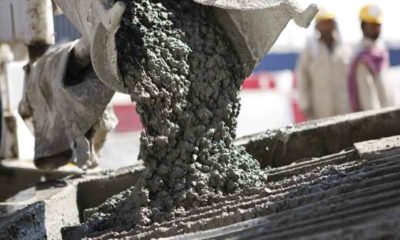Nigeria’s manufacturing sector grew at a slower pace in the second quarter of the year, according to the latest data from the National Bureau of Statistics (NBS).
The manufacturing sector grew at a 2.2% rate in the quarter under review, the lowest since the second quarter of 2020.
This underperformance can be attributed to a harsh business-operating environment characterized by poor macroeconomic indicators.
Muda Yusuf, CEO of the Centre for the Promotion of Private Enterprise, cited a nationwide cash crunch in the first quarter of the year as a primary driver.
Yusuf also pointed out the sector’s heavy dependence on imports, making it highly sensitive to foreign exchange (FX) issues.
According to the NBS report, the manufacturing sector’s contribution to GDP in the second quarter of 2023 was 8.62 percent, a slight dip from the 8.65 percent recorded in the same period in 2022.
A new report by the Manufacturers Association of Nigeria (MAN) highlighted unfavorable changes in the sector’s major performance indicators throughout 2023. The economic turmoil significantly impacted consumer patronage and disrupted the manufacturing value chain.
Financial analyst Amaechi Egbo explained that low-capacity utilization, stemming from poor purchasing power due to the February cash scarcity, has severely affected firms in the sector.
He also cited factors like import levies, exchange rate volatility, haulage costs for imported materials, and the reliance on alternative power sources as contributors to a nearly 30 percent increase in production costs.
Moses Igbrude, President of the Independent Shareholders Association of Nigeria, noted that manufacturing firms have been grappling with unexpectedly high operating costs, leading to reduced profitability.
This has particularly affected consumer goods companies, given weak demand due to household budget constraints.
Findings indicated that despite rising inflation and weakened purchasing power, some of Nigeria’s largest consumer goods firms have managed to sustain sales. However, a challenge they face is delayed payments from customers.
In the first half of 2023, the combined trade receivables of nine publicly-listed consumer goods firms, including Nestle Nigeria Plc and Dangote Sugar Refinery, increased by a substantial 94 percent, reaching N555.86 billion compared to N286.15 billion in 2022.
Uchenna Uzo, a consumer expert and faculty director at the Lagos Business School (LBS), emphasized that inflation has eroded customers’ capacity to pay, further diminishing economic activity within Nigeria’s manufacturing sector.
Despite these challenges, industry players are looking for ways to navigate the turbulent economic waters and maintain stability in this critical sector.

 Forex3 weeks ago
Forex3 weeks ago
 Naira3 weeks ago
Naira3 weeks ago
 Billionaire Watch3 weeks ago
Billionaire Watch3 weeks ago



 Naira3 weeks ago
Naira3 weeks ago






 Naira2 weeks ago
Naira2 weeks ago




 Naira2 weeks ago
Naira2 weeks ago




 Naira4 weeks ago
Naira4 weeks ago






 Naira1 week ago
Naira1 week ago
























